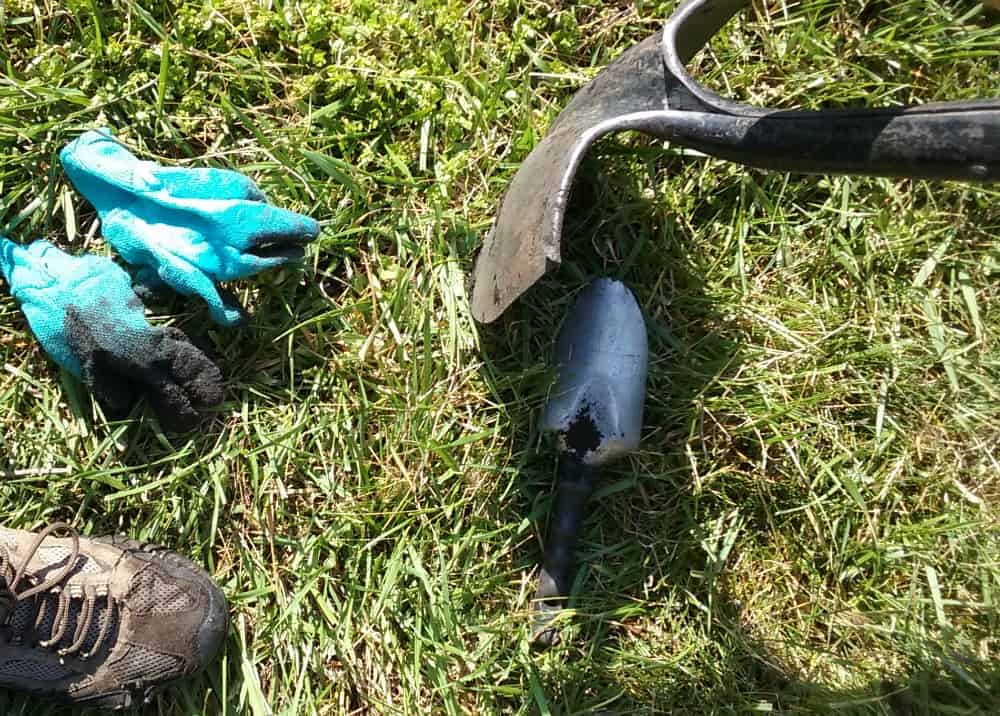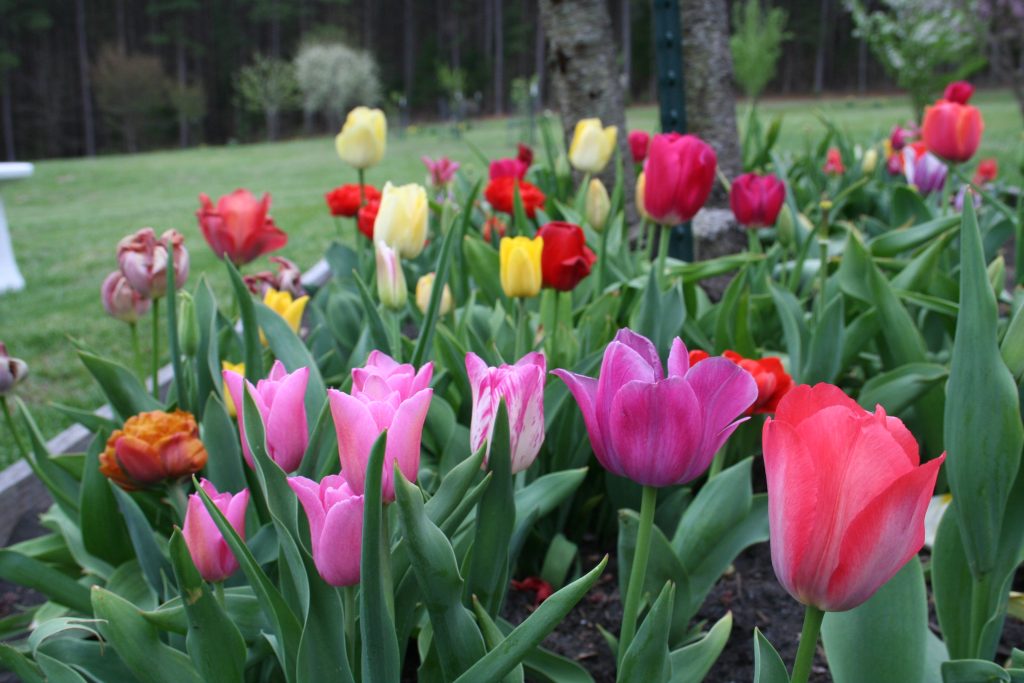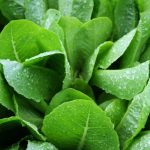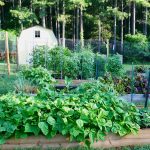Don’t work wet soil. Waiting to get into the garden pays off in big benefits later in the form of healthier soil. It’s worth the wait.

Why You Shouldn’t Work Wet Soil
This spring weather has been crazy. One day, it is 80 and sunny, and my apple trees are buzzing with bees. The next day, it’s snowing, or we’re under a tornado watch. We get an inch of rain in under 12 hours and then we have a fire risk warning the next day.
What crazy weather we’re having….and having….
It’s tempting to go out and start digging on the first lovely spring day that comes your way. But there are dangers to working with too-wet soil.
Soil consists of water, air molecules, organic matter, and small particles of rocks. The amount of each as well as the size of the particles gives soil a sandy, clay, or loamy texture.
Wet soil is soil that is saturated with water. After a heavy rain, water soak through the small pockets and spaces between the other particles, filling as many of the gaps as it can fill.
When soil is heavy with water, working the soil through tilling, digging, or walking too much on the wet ground compacts the soil. Basically, you are squishing all the particles together so that you’re removing space for air. The results, states an article in the Daily Herald, can mean damaged soil not just for this season, but for years to come.

How do you now when wet soil is too wet? Most gardeners know by instinct but if you are new to gardening, scoop up a handful and squeeze it. If water drips from it, it’s too wet. If it makes a heavy clay ball, it’s too wet.
When in doubt, wait. Tilling, spading, or hoeing wet soil will hurt your garden and take years to fix the damage.




